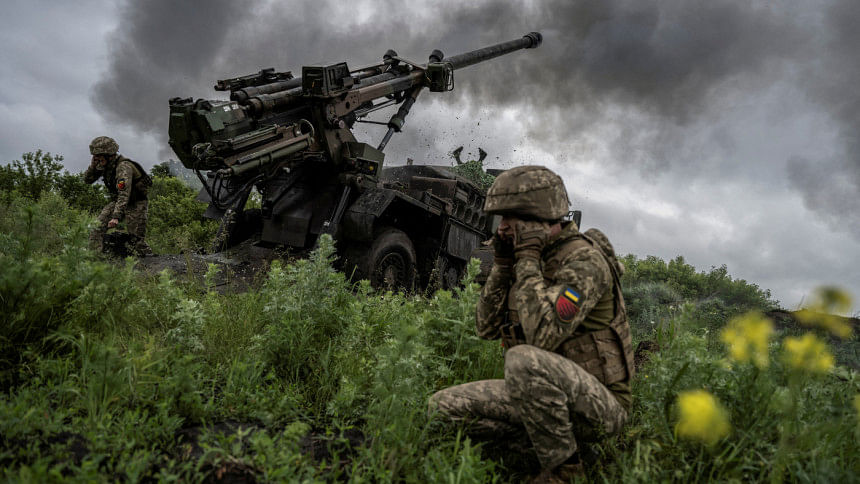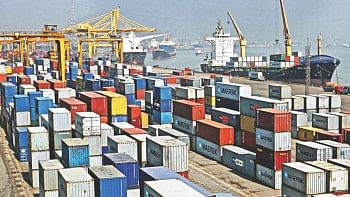The Ukraine war was provoked

The war in Ukraine, often depicted as an unprovoked Russian aggression in Western narratives, has far-reaching implications for South Asia—a region navigating food insecurity, economic instability, and the pressures of great-power rivalry. For nations like India, Pakistan, and Sri Lanka, the conflict is not a distant European crisis but a stark reminder of how geopolitical miscalculations can destabilise the Global South. This article challenges the simplistic "good vs evil" framing of the war, drawing on scholars like Jeffrey Sachs and John Mearsheimer to argue that NATO's post-Cold War expansion provoked Russia's insecurities. By confronting this history, South Asia can champion a multipolar world where dialogue supersedes militarisation, safeguarding its own future in an increasingly fractured global order.
Historical backdrop: NATO expansion and Russian insecurity
The seeds of the Ukraine war were sown in the ashes of the Soviet Union. In 1991, as Russia grappled with economic collapse, NATO began its eastward march, absorbing former Warsaw Pact states. By 1999, Poland, Hungary, and the Czech Republic joined the alliance, despite assurances to Moscow by Western powers that NATO would not expand "one inch eastward." George Kennan, the architect of Cold War containment, warned in 1998 that this expansion would reignite confrontation: "I think it is the beginning of a new cold war. The Russians will gradually react quite adversely, and it will affect their policies."
The 2008 NATO Bucharest Summit marked a turning point. The alliance's pledge to admit Ukraine and Georgia, both bordering Russia, ignited Kremlin's fears of encirclement. Russian President Vladimir Putin declared Ukraine's potential membership to be a "direct threat," akin to what the US would feel if Mexico aligned with a hostile power. Meanwhile, the EU's Eastern Partnership programme deepened ties with Ukraine, undermining Moscow's influence in its historic sphere.
The 2014 Maidan Revolution, hailed in the West as a democratic awakening, was viewed through a darker lens in Moscow. Leaked phone calls between US Assistant Secretary of State Victoria Nuland and Ambassador Geoffrey Pyatt, discussing post-revolution leadership, reinforced Russian suspicions of a Western-orchestrated coup. The ouster of pro-Russian President Viktor Yanukovych led to Crimea's annexation and the Donbas rebellion, with the Minsk Agreements (2014-2015) failing to reconcile Kyiv's sovereignty and Moscow's demand for autonomy in eastern Ukraine. Jeffrey Sachs notes, "The West treated the Minsk process as a way to buy time for Ukraine's military buildup, not a path to peace."
The provocation narrative: Scholarly perspectives
The conflict is a case study in the perils of ignoring security dilemmas. John Mearsheimer's "liberal hegemony" theory posits that NATO's expansion and Western democracy promotion in Ukraine recklessly challenged the core interests of Russia. "The West is leading Ukraine down the primrose path," he argued in 2014, "and the end result is Ukraine's demise as a sovereign state."
Professor Glenn Diesen's recent book Russophobia, critiques how Western media de-humanises Russia to justify confrontation. The 2013 EU-Ukraine Association Agreement, which threatened Russian trade ties, and US military aid post-2014—including Javelin missiles—solidified Kyiv's alignment with the West. Sachs highlights Washington's interference since 2004, including funding opposition groups during Ukraine's Orange Revolution: "This isn't about morality; it's about power. The US wanted Ukraine in its orbit, whatever the cost."
Sovereignty vs security: Addressing counterarguments
Western leaders frame the war as a defence of Ukrainian sovereignty. Yet sovereignty cannot exist in a vacuum. The US would never tolerate hostile alliances on its borders—just look at the 1962 Cuban Missile Crisis. Hypocrisy stains Western outrage: the invasions of Iraq (2003) and Libya (2011), justified under false pretences, contrast sharply with moralising over Ukraine.
Sachs clarifies: "Provocation isn't justification, but peace requires accountability." Dismissing Russia's security concerns perpetuates cycles of violence. Great powers must respect each other's spheres of influence, or risk endless conflict.
South Asia's stake: Economics and geopolitics
The war's fallout is visceral for South Asia. Ukraine supplied 10 percent of the world's wheat, feeding millions in Bangladesh and Pakistan. Russia's Black Sea blockade spiked global wheat prices by 20 percent, forcing Bangladesh to ration subsidised grains. In Pakistan, flour prices doubled, exacerbating political turmoil.
Sri Lanka's 2022 economic collapse, worsened by soaring energy costs, underscores Global South vulnerability. Diesel shortages paralysed transport, while disrupted fertiliser imports from Russia and Ukraine crippled agriculture. Activist Ahilan Kadirgamar lamented, "The Global North's sanctions weaponize food and energy—we pay the price."
India's pragmatic diplomacy offers a model. Despite Western pressure, it boosted Russian oil imports from 2 percent to 20 percent in 2022, shielding its economy. Foreign Minister S Jaishankar defended this stance: "Europe prioritises its energy security—why shouldn't we?" India's non-aligned roots, balancing ties with Moscow and Washington, highlight the futility of Cold War-style blocs.
The conflict also warns against entanglements in great-power rivalries. As US-China tensions escalate, South Asia faces pressure to "pick sides." The Quad's militarisation of the Indian Ocean mirrors NATO's encirclement logic, risking conflict over Taiwan or the South China Sea. Pakistani analyst Ayesha Siddiqa warns, "Proxy wars thrive when regions become chessboards."
Militarisation vs diplomacy: Europe and the US divided
Europe's pivot to a "war economy," critiqued by Thomas Fazi, prioritises arms over welfare. Germany's 100-billion-pound defence fund and Poland's rearmament risk a Cold War relapse. Fazi notes, "Militarisation erodes democracy—leaders invoke external threats to silence dissent."
US politics fracture over Ukraine. Biden's "as long as it takes" approach clashes with Trump's push for negotiation. The 2024 election could pivot US strategy, underscoring the Global South's need to champion consistent diplomacy.
A roadmap for peace: Multipolarity and the Global South
1. Neutrality for Ukraine: ensuring it isn't a NATO/EU-Russia battleground.
2. Restructured security architecture: Revive OSCE-led talks, integrating Russian concerns.
3. Global South leadership: Brazil, China, India and Indonesia must leverage BRICS and G20 to mediate.
4. Economic recovery: rebuild Ukraine with joint investments; restore Black Sea grain deals to stabilise Global South economies.
India's G20 presidency exemplified this potential. By hosting summits that included both Moscow and Kyiv, New Delhi tried to bridge divides. As Sachs urges, "Without honesty about the war's origins, there can be no justice in its resolution."
Conclusion: Toward a humble peace
The Ukraine war underscores the folly of unilateralism. For South Asia, a region scarred by partition and intervention, the path forward lies in rejecting militarised blocs and revitalising non-alignment. By championing multipolarity, the Global South can transform this crisis into a catalyst for a fairer world order.
Zakir Kibria is a writer and policy analyst. He can be reached at [email protected].
Views expressed in this article are the author's own.
Follow The Daily Star Opinion on Facebook for the latest opinions, commentaries and analyses by experts and professionals. To contribute your article or letter to The Daily Star Opinion, see our guidelines for submission.

 For all latest news, follow The Daily Star's Google News channel.
For all latest news, follow The Daily Star's Google News channel. 











Comments